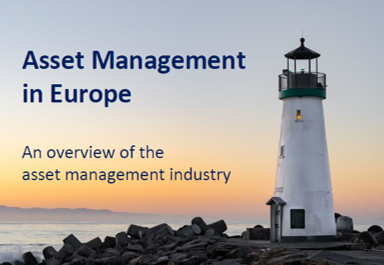EFAMA firstly wishes to commend the FSB’s change of focus in the course of 2015, from a proposed assessment methodology intended to identify non-bank, non-insurance globally systemically important financial institutions (NBNI G-SIFIs) to a revised and more objective focus on asset management activities. Although we understand the former framework may be revisited by the FSB once its Recommendations are finalised, we appreciate that certain key characteristics of the asset management industry have been recognised and well reflected in the present consultative document.
International Agenda
Whereas EFAMA’s primary focus is on EU financial services legislation, we also actively engage at a global level with international standard-setting bodies, such as IOSCO (of which EFAMA is an affiliate member), the Financial Stability Board (FSB) or the OECD, to name but a few. In this context, EFAMA strongly supports the development of mutually agreed international regulatory standards to reduce market fragmentation and facilitate cross-border business.
We also keep a close watch on regulatory developments in jurisdictions outside the European Union that are likely to significantly impact our members’ activities. For example, in recent years EFAMA actively engaged with foreign authorities on regulations limiting the distribution of European funds abroad. Examples include filings to the UAE Securities and Commodities Authority (SCA), the Indian SEBI, the U.S. SEC and the OECD.
EFAMA reply to FSB consultation on proposed policy recommendations to address structural vulnerabilities from asset management activities
Key recommendations for fair benchmark data costs - EFAMA/ICSA Global Memo on Benchmark Data Costs
EFAMA (European Fund of Asset Management Associations) and ICSA (International Council of Securities Association) published today a Global Memo on Benchmark Data Costs, identifying the main challenges arising from the increased use of benchmark data over recent decades and the imposition of increasingly complex and ove
EFAMA's and ICMA’s AMIC joint response on fund liquidity management by open-ended funds to IOSCO
ICMA’s AMIC and EFAMA have submitted a joint response to the IOSCO consultation on fund liquidity management by open-ended funds.
The response highlights how industry practices and existing regulatory provisions in Europe are well aligned with the Liquidity Risk Management (LRM) recommendations issued by IOSCO in 2018 (Annex 1).
International statistics Q3 2020 | Global divergences in long term funds net sales in Q3 2020
|
The European Fund and Asset Management Association (EFAMA) has today published its latest quarterly international statistics, tracking and analysing trends in worldwide regulated open-ended fund assets and flows for Q3 2020.
|
Annual Review June 2019-June 2020
"It gives me great pleasure to provide you with an overview of our activities since our Annual General Meeting in Paris last year. While we were very much looking forward to hosting you all in Brussels this week, the current crisis and associated travel restrictions has forced us to improvise and turn our meeting into a virtual AGM.
EFAMA Market Insights | Issue #1 | Net outflows from UCITS in March 2020 - Industry weathers Covid-19 crisis
The Covid-19 pandemic significantly impacted financial markets. Stock markets across the world suffered a steep decline driven by lower economic growth and corporate profits. As anticipated, the crisis caused substantial net outflows from UCITS in March (EUR 313 billion). However, as a percentage of net assets, these outflows were no higher than in October 2008, at the height of the global financial crisis (2.9%).
Asset Management Report 2019
The EFAMA Asset Management in Europe report aims at providing facts and figures to gain a better understanding of the role of the European asset management industry. It takes a different approach from that of the other EFAMA research reports, on two grounds. Firstly, this report does not focus exclusively on investment funds, but it also analyses the assets that are managed by asset managers under the form of discretionary mandates. Secondly, the report focuses on the countries where the investment fund assets are managed rather than on the countries in which the funds are domiciled.
































